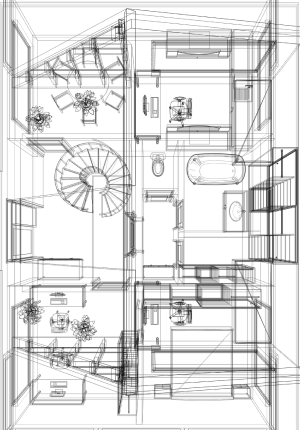Tomorrow’s HVAC: Smart Technologies & Green Solutions
The realm of HVAC has seen significant evolution over the decades, adapting and innovating to meet the ever-changing needs of consumers and the environment. As technology catapults forward, the HVAC industry isn’t being left behind. This article will explore the exciting technological advancements in the HVAC world, such as smart technologies, AI-driven systems, and eco-friendly options that promise sustainability and efficiency.
- Smart Thermostats: The Next-Gen Comfort Controllers
Gone are the days when you had to manually adjust your thermostat dial throughout the day. Smart thermostats have revolutionized the way we maintain our home’s comfort. With features like learning capabilities, they can adjust themselves based on your living habits. For instance, they can detect when you’re away from home and reduce heating or cooling to save energy.
Coupled with smartphone applications, you can control your home’s temperature from anywhere in the world. Some models even provide energy consumption reports, giving homeowners insights into their usage patterns and suggesting ways to improve efficiency.
Some notable brands that have been recognized for producing smart thermostats are Nest, Ecobee, Honeywell, which all have their own unique features. Before purchasing, it’s essential to evaluate which features are most important for your needs and compatibility with your current HVAC system.
- AI-Driven Systems: Personalized Comfort Through Learning
Artificial Intelligence (AI) is embedding itself into various industries, and HVAC is no exception. AI-driven HVAC systems go beyond mere temperature adjustments. They can analyze vast amounts of data, from outdoor weather conditions to the number of people in a room, and adjust operations accordingly.
For instance, if the system predicts a cold wave approaching, it might start heating your home a bit earlier, ensuring it’s warm when you arrive. Predictive maintenance is another benefit. Using AI, these systems can detect potential issues before they become severe problems, reducing repair costs and increasing the system’s lifespan.
The incorporation of AI into HVAC systems is a relatively recent trend, but several companies are leading the way in integrating AI technologies to optimize energy use, predict maintenance needs, and enhance overall system performance such as Mitsubishi Electric, Daikin, Johnson Controls, and Trane.
Remember that while these brands are integrating AI into their systems, the specific features, advantages, and compatibility will vary. If considering an upgrade or a new installation, it’s beneficial to consult directly with the company or a trusted HVAC professional to understand the full capabilities of an AI-driven system.
- Eco-Friendly Options: Sustainable and Efficient
With climate change concerns growing, there’s a pressing need for green solutions in every industry. The HVAC sector is rising to the challenge with an array of sustainable options:
- Geothermal Heating & Cooling: This system leverages the Earth’s consistent underground temperature. In the winter, the system extracts heat from the ground to warm the house, and in the summer, it does the opposite, providing efficient cooling.
- Solar-Powered HVAC Systems: With solar panels becoming more affordable, solar-powered HVAC systems are gaining popularity. These systems reduce reliance on the grid, cut down energy bills, and decrease carbon footprints.
- Variable Refrigerant Flow (VRF) Systems: Highly efficient and versatile, VRF systems can provide heating and cooling simultaneously to different parts of a building. They adjust the flow of refrigerant based on demand, ensuring optimal performance and energy efficiency.
- Air Source Heat Pumps: These devices can heat and cool spaces. They work by transferring heat from the outside air to inside during winters and vice-versa during summers. Modern variants are even efficient in extremely cold temperatures.
The Road Ahead: A Confluence of Comfort and Conservation
The HVAC industry is at an exciting crossroads. As technological advancements, like AI and IoT (Internet of Things), become more mainstream, the opportunities for innovation in HVAC are vast. Smart sensors that detect air quality and adjust ventilation, self-healing systems that fix minor malfunctions, and integration with smart home ecosystems are just the tip of the iceberg.
Moreover, the focus on green solutions is not just a trend but a necessity. As consumers become more eco-conscious, the demand for systems that offer minimal environmental impact without compromising comfort will rise. Manufacturers who prioritize sustainability, along with technological innovation, are poised to lead the industry.
In conclusion, the future of HVAC is bright and brimming with possibilities. As smart technologies merge with green solutions, we can look forward to homes and offices that aren’t just comfortable but are also kinder to our planet. The next decade in HVAC promises a harmonious blend of innovation, efficiency, and sustainability.


